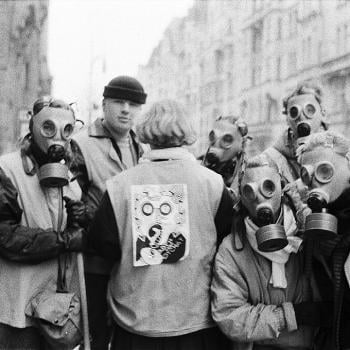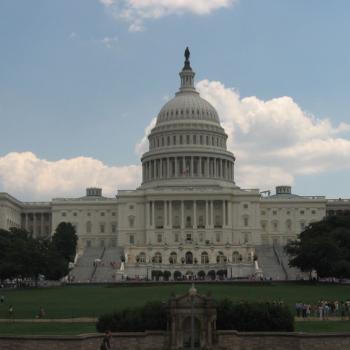
We seem to be living in a time of mass migration. It is not the first time in history, nor, if humanity survives present day threats like climate change and war, will it likely be the last. While much can be and has been said about the sad treatment of migrants and refugees in the United States, often by those who claim to be Christian, the problem surrounding migrants and refugees is far more extensive than what is happening in the United States. Europe is dealing with a migrant and refugee problem, and many Europeans are not willing to treat them with the dignity and respect they need. Instead, they are facing a massive xenophobic backlash, similar to what is found in the United States, making it difficult, if not impossible, for them to receive the aid they need. Many countries, like Italy, find itself standing against them, doing what they can to try to keep them out while doing nothing to fix the problem which has had many people to leave their homeland, as Nicole Winfield, Lorne Cook, and Angela Charlton indicated in the Associated Press (9-18-2023):
The Italian Cabinet met Monday to adopt new measures to crack down on migration after the southern island of Lampedusa was again overwhelmed by a wave of arrivals from Tunisia and the migration issue returned to center stage in Europe with talk of a naval blockade.
France has indicated its willingness to support and help Italy, while Germany has said that it intends to help those Italy says it will not take in. Now, to be sure, there are serious issues, as it is difficult to help massive waves of migrants and refugees. Nonetheless, they should always be treated with compassion, respecting and promoting their dignity. They should not be mistreated or shown contempt, and yet, it is clear, that is not what is happening; they are finding their dignity undermined as xenophobia takes control of the narrative.
Instead of ignoring why the problem exists, why people feel the need to leave their homeland, proper measures must be made to find and deal with the root problem. Nonetheless, aid and shelter can be given to the migrants and refugees until the situation improves. Just as with the United States, many countries in Europe, due to their international status, bear responsibility for the crisis, and that must factor in with their response. Sadly, it is clear those who hold the most power and authority, and so the most responsibility, are trying to shrug their shoulders at the problem; as a result, the problem will only become worse in the future. And if that happens, more and more people are going to have to speak up and defend the migrants as they will face more and more dehumanization. Those who have power and riches, of course, are expected to do more than those who do not, but everyone can lend their voice in support of the migrants and their cause, making sure that their government treats migrants and refugees properly, not shirking from their duty to the world.
Many who leave their homeland, even if they are not technically a refugee, do so, not because they really want to leave, but because they fear what will happen if they remain. Many others, of course, are outright forced to flee due to immediate threats to their lives. Understanding this, Pope Benedict XVI, like St. John Paul II, talked about how the right to migrate includes the right not to migrate – that is, people should not feel pressure to leave their homeland, in his Message For the World Day of Migrants And Refugees in 2013:
Certainly every state has the right to regulate migration and to enact policies dictated by the general requirements of the common good, albeit always in safeguarding respect for the dignity of each human person. The right of persons to migrate – as the Council’s Constitution Gaudium et Spes, No. 65, recalled – is numbered among the fundamental human rights, allowing persons to settle wherever they consider best for the realization of their abilities, aspirations and plans. In the current social and political context, however, even before the right to migrate, there is need to reaffirm the right not to emigrate, that is, to remain in one’s homeland; as Blessed John Paul II stated: “It is a basic human right to live in one’s own country. However this rights become effective only if the factors that urge people to emigrate are constantly kept under control” (Address to the Fourth World Congress on the Pastoral Care of Migrants and Refugees, 9 October 1998).
One of the factors which having a greater influence on migration patterns is climate change; we are seeing more and more people being forced to relocate thanks to the way climate change affects their homeland, making it impossible for them to remain, as Bella Isaacs-Thomas reported on the PBS News Hour (2-28-2022):
Rising temperatures around the globe are increasingly killing humans and trees, have forced half of all species on the planet to relocate, caused more water-borne and respiratory illnesses in people and threatened food and water security for millions, says a major new climate report released Monday by the Intergovernmental Panel on Climate Change.
Julie Watson similarly wrote for AP News (7-28-2022):
Worsening climate largely from the burning of coal and gas is uprooting millions of people, with wildfires overrunning towns in California, rising seas overtaking island nations and drought exacerbating conflicts in various parts of the world.
Each year, natural disasters force an average of 21.5 million people from their homes around the world, according to the U.N. High Commissioner for Refugees. And scientists predict migration will grow as the planet gets hotter. Over the next 30 years, 143 million people are likely to be uprooted by rising seas, drought, searing temperatures and other climate catastrophes, according to the U.N.’s Intergovernmental Panel on Climate Change report published this year.
Isn’t it sad that many of the same people who want to deny climate change, when it is happening around us and already affecting the planet we live on, are also those who deny our responsibility to those who are affected by it, including migrants? It is as if they want to deny anything which requires them to act on behalf of others, that is, for them to work for the common good instead of their own selfish desires (is that not also what we see with COVID19?). Sadly, their policies, their inaction and rejection of the problems at hand, are only making the matters worse. This cannot go on forever. Unless major changes take place in the world, not only in relation to climate change, but in relation to the way people with wealth and power see and understand the world, what we see happening today will be nothing in comparison to the brutality and bloodshed which is to come.
Christians are meant to speak with and stand prophetic justice. This is why they need to look to the needs of the migrants and refugees, making sure they are not demonized in order to justify dehumanization. They must fight against the temptations which suggests that they do not have to care for others, that they are not their brother’s and sister’s keepers. They might not personally have the means to do much, that is, they might not have many personal resources to share, but they can work to make sure the countries they live in, which have resources they do not personally have, use those resources for the common good. They must make sure migrants and refugees are given what they need instead of having them turned away and left to perish. Their needs are far too many, and the reasons for them far too complex, to suggest that the only way to deal with them is through the goodwill of individuals. We are stronger together, not divided, which is why it is only by coming together, pooling resources and talent, that the problem, like many other problems, can be dealt with.
We should heed the prophetic words St. John Paul II said in his Message for World Migration Day 1996: “It is necessary to guard against the rise of new forms of racism or xenophobic behaviour, which attempt to make these brothers and sisters of ours scapegoats for what may be difficult local situations.” Sadly, racism of this kind rises as an excuse to ignore the needs of the other, including migrants and refugees. This is what we see happening in Europe. This is certainly what we see happening in the United States. It is the kind of fearmongering which historically leads to mass bloodshed. Christians must join themselves with those standing for the common good, with those who speak with the voice of sanity, making sure that such bloodshed never again happens. And this means, Christians must work hard against the temptation of xenophobia and the hatred which flows from it, or, as John Paul II said in his Message for the World Day of Migrants and Refugees in 2003, Christians must learn to engage others in solidarity:
Often, solidarity does not come easily. It requires training and a turning away from attitudes of closure, which in many societies today have become more subtle and penetrating. To deal with this phenomenon, the Church possesses vast educational and formative resources at all levels. I therefore appeal to parents and teachers to combat racism and xenophobia by inculcating positive attitudes based on Catholic social doctrine.
Solidarity, not individualism, humanizing love, not dehumanizing mistrust, and the promotion of the common good for humanity, not the selfish interests of particular countries or individuals, must be at the forefront of our reaction to the migrant crisis. We must look at the root problems, and deal with them. We must recognize what modern day problems, like climate change, will only make the situation worse in the future if we do not deal with them today. We must not shirk our responsibility, hoping to pass it on to the future. The problem exists with us now, and it is getting worse, not better. We see the signs of the world system breaking all around us. It doesn’t have to break. It can be reformed. It can be made better. This requires humanity to work together to protect the common good. Those resisting this, trying to ignore the problem, or push it off on others, will be held responsible for their inactivity, either by facing the consequences of the breakdown of the world system they have helped usher in, or in the eschatological judgment as they come face to face with their own lack of mercy. Sadly, though, they are not the only ones who will suffer. Those they ignore, those they mistreat, will likewise suffer greatly, and those people who have a voice which cries up to heaven. We have seen what inhospitality did to Sodom and Gomorrah. Are we going to let it happen to the whole world?
Stay in touch! Like A Little Bit of Nothing on Facebook.
If you liked what you read, please consider sharing it with your friends and family!
N.B.: While I read comments to moderate them, I rarely respond to them. If I don’t respond to your comment directly, don’t assume I am unthankful for it. I appreciate it. But I want readers to feel free to ask questions, and hopefully, dialogue with each other. I have shared what I wanted to say, though some responses will get a brief reply by me, or, if I find it interesting and something I can engage fully, as the foundation for another post. I have had many posts inspired or improved upon thanks to my readers.













